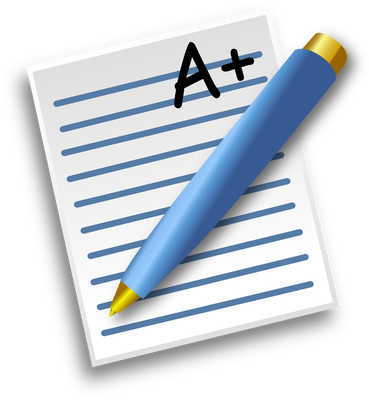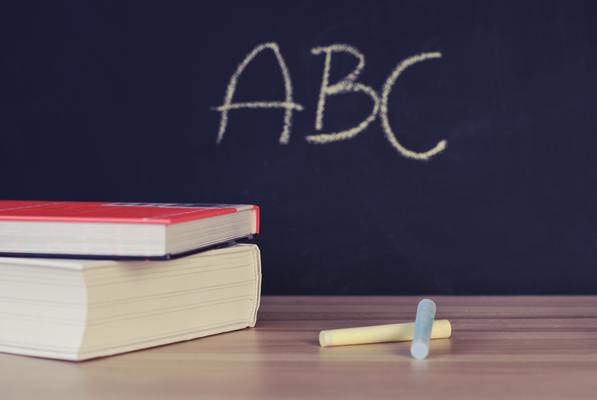Have you just got your child’s end-of-year report card?
Are you wondering what it actually says about your child’s progress? Chances are you aren’t alone.
Teachers typically use a range of descriptors to describe how your child is tracking academically – and some need deciphering.
Report card expert Dr Selina Samuels says some terms clearly indicate your child is doing well, while others indicate there are issues that need addressing.
She should know – she proofread end-of-year report cards for several years.
“It was immediately obvious that each teacher had their pet words, phrases or grammatical constructions,” the chief learning officer of Cluey Learning says.
“Even taking into account individual idiosyncrasies, some terms emerge the winners.”
Here, she explains the phrases teachers use in report cards and what they really mean.
Decoding common phrases in a report card
- Erratic or inconsistent: These words in a report card tell parents that little Susan is probably playing to her strengths and ignoring anything not already easy and familiar. It’s also a veiled request to the parents to have a look at the family infrastructure around homework and for more consistency at home.
- So much potential: If your child’s teacher uses this phrase, then they’re saying your child is bright enough but lazy. If they ‘lack focus’ they aren’t applying themselves. ‘Emerging skills’ tells you there is a glimmer of hope and they haven’t given up on them just yet.
- Very social, bubbly, or engages enthusiastically in discussion: These terms mean your child is likeable but chatty, and probably distracts the children around them.
- Independent: Students who are ‘independent’ are probably not good sharers.
- Good listener: This means your child never asks questions or contributes in class.
- Knows his/her own mind: Your child may be stubborn and uncooperative.
- But: If your child’s report card is peppered with positive statements followed by ‘buts’ – such as ‘Samson is a keen student but his efforts are not always rewarded’, chances are his teachers are fond of him but a bit exasperated at the same time (you probably are too).
- Pleasing: If your child’s work is ‘pleasing’, that probably indicates the teacher is writing report comment number 58 and has run out of new adjectives.
- She/he is a pleasure to teach: If your child’s teacher says this, chances are it’s true. Teachers do not use that phrase gratuitously.
Phrases that indicate your child is doing well
Phrases like ‘sophisticated understanding’ and ‘confident application’ in a report card are strong indicators that your child is working at an impressive level. If he or she has a ‘clear understanding’ and their work is ‘effective’, they are noticeably making progress and you have little to be worried about. If skills are ‘secure’ and there is talk of ‘improvement’, everything is going in the right direction.
Comments on the report card about your child’s ambition or hunger for learning may also indicate he/she is not being fully extended in class and the teacher wants you to explore opportunities for additional extension.
Phrases that indicate your child may be having difficulties
- If your child is only able to demonstrate certain skills ‘at times’ or has ‘some or little understanding’, it is likely he/she needs a fair amount of academic support. If they are passive or quiet, it may be that the teacher is finding it difficult to diagnose levels of knowledge and ability.If your child’s report cards talk a lot about ‘inconsistencies’, particularly between different modes of expression, it’s worth getting more information.
- If your child is described as having ‘difficulties adjusting to rules and routines’, this might be the teacher telling you he/she is naughty, or it may suggest that there is something else going on. Equally, pay attention if the teacher mentions that your child finds it difficult to adjust to changes in routine.
- If a teacher describes your child as a ‘perfectionist’, this is not necessarily a good thing. It could be that he/she is so particular about presentation or so frightened of getting something wrong that he/she resists submitting anything for feedback
The best and worst comments in a report card
- The best comments are ones specific to your child and show you that the teacher really knows them. The worst are merely generic. Even if you are being told something negative about your child’s academic abilities or behaviour, it is better to hear it so that you can work with the school to provide necessary support.
- The worst report comments are jargonistic and procedural – telling you what the class has covered but giving very little information about how your child is progressing. It’s also important to note that report cards are not merely retrospective, but also provide genuine advice about where your child’s focus should lie for the next term or year.
Deciphering letter grade systems
While some schools don’t incorporate grades into their formal reports, a five-point letter grade system (A-E) is included in the achievement standards of the Australian National Curriculum.
- A: Awarded for extremely high achievement and is described using words such as ‘sophisticated’ and ‘confident’.
- B: For work that is ‘effective’ and demonstrates ‘clear understanding’. Students are awarded B grades for work that is capable and secure.
- C: Awarded where the student ‘is able to’ demonstrate particular skills or where understanding is ‘developing’. Skills may be inconsistent.
- D: Awarded where the output of the student shows ‘some understanding’ or where the student is only able to demonstrate skills ‘at times’. D grades may indicate that the student has not done much or what they have submitted is incomplete.
- E: Show the student may have ‘little’ or only ‘rudimentary’ understanding of the concepts covered in the subject. The student may require considerable teacher support to demonstrate any understanding or skills.











